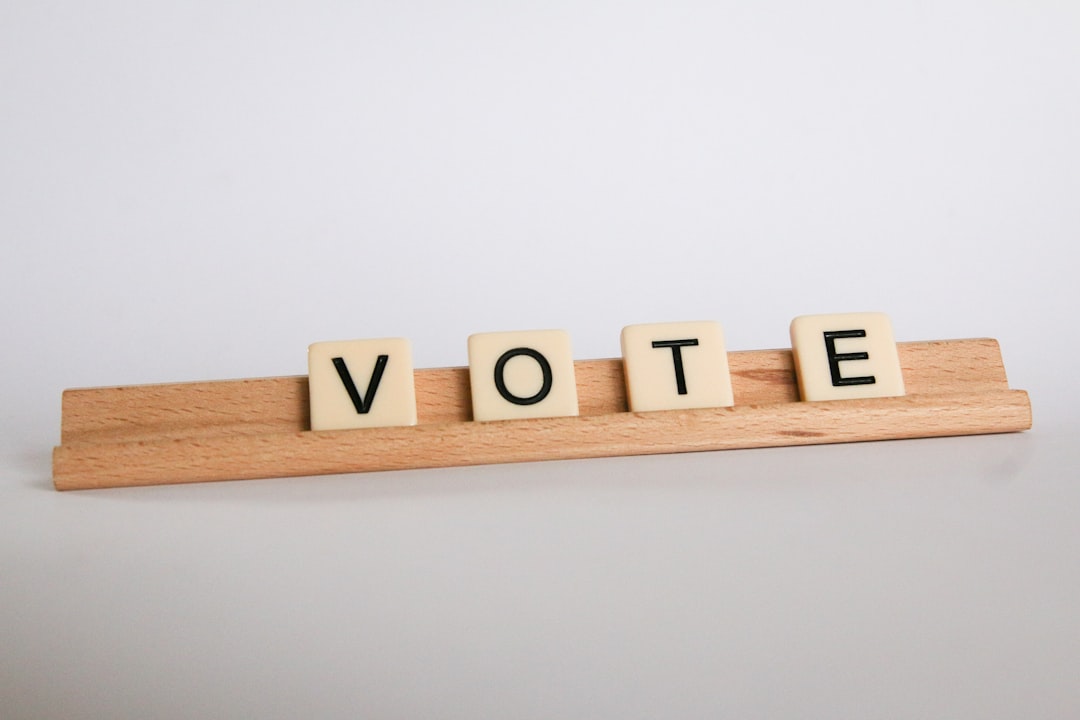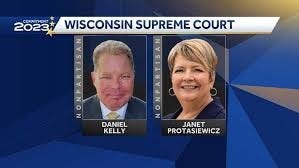To My Dunn County Neighbors! Where Will You Be on April 4th!?!
Rule of Law vs. Judicial Activism - Tomorrow IS our Wisconsin Spring Election Day!
I thought it would be a good idea to go over the terminology of the “Rule of Law” and “Judicial Activism” as we go into tomorrow’s Spring Election 2023 as we decide on a Wisconsin Supreme Court Justice seat that needs to be filled. We have been hearing these terms pop up quite a bit as we have been following the Wisconsin Supreme Court race of Former Wisconsin Supreme Court Justice, Daniel Kelly and Judge Janet Protasiewicz. So let’s take a closer look to their meanings and it’s implications.
Below find an Overview of the Rule of Law based on U.S. Courts.gov:
More than 200 years ago, Alexander Hamilton, James Madison, and John Jay published a series of essays promoting the ratification of the United States Constitution now known as Federalist Papers. In explaining the need for an independent judiciary, Alexander Hamilton noted in The Federalist # 78 that the federal courts "were designed to be an intermediate body between the people and their legislature" in order to ensure that the people's representatives acted only within the authority given to Congress under the Constitution.
The U.S. Constitution is the nation's fundamental law. It codifies the core values of the people. Courts have the responsibility to interpret the Constitution's meaning, as well as the meaning of any laws passed by Congress. The Federalist # 78 states further that, if any law passed by Congress conflicts with the Constitution, "the Constitution ought to be preferred to the statute, the intention of the people to the intention of their agents."
"Nor does this conclusion by any means suppose a superiority of the judicial to the legislative power. It only supposed that the power of the people is superior to both; and that where the will of the legislature, declared in its statutes, stands in opposition to that of the people, declared in the Constitution, the judges ought to be governed by the latter rather than the former. They ought to regulate their decisions by the fundamental laws, rather than by those which are not fundamental."
Now let’s go deeper into The Four Pillars of the Rule of Law according to Black’s Law Dictionary 2nd Edition:
The Four Pillars of the Rule of Law
The concept of the rule of law goes back to ancient times and it can essentially be summed up by the well-known phrase, “nobody is above the law.” In other words, in a governing system based on the rule of law, everybody is held equally accountable under the same laws. In contrast, a system that is based upon the rule of men, such as a tyranny, monarchy, theocracy, or oligarchy, occurs when governance, laws, and the administration of justice are determined by the interests of a single person or group of people. While rule of law is a fundamental principal in many countries today, the World Justice Project points out that effective rule of law itself depends on the upholding of the following four principles.
The law applies to everyone
Perhaps one of the defining features of the rule of law is that, under such a system, the law is applied equally to all citizens, including the lawmakers themselves. Rule of law simply means that the law itself, rather than individuals or organizations, reigns supreme. Therefore, even people who enforce and administer the law, such as police officers, judges, and lawyers, are still subject to the same laws as everybody else is.
The laws are not secret or arbitrary
For a rule of law system to function, the laws themselves must be public, fair, stable, and understandable. If the laws change too frequently or arbitrarily, or the laws themselves are not publicized, then citizens have little hope of being able to abide by those laws. Furthermore, the laws must not violate fundamental human rights, which would again make them unfair to citizens.
The laws are enforced fairly
It’s one thing for the laws to be written fairly, but if they are enforced in such a way that is either arbitrary or unfair then the rule of law begins to break down. For example, if a jurisdiction passes laws against drug use, but then only enforces those laws against a particular ethnic minority or social group, then the laws are not being enforced fairly. Citizens living under a rule of law system have a right to know that the laws are being administered and enforced in a way that is fair and accessible.
The justice system is fair
Not only must laws be enforced in a fair and non-arbitrary manner, but so too must justice be delivered in a way that is fair, accessible, and efficient. In other words, the judicial system must stand independent of outside interference, such as by politicians or law enforcement agencies. Instead, the justice system must function to administer the law in such a way that citizens can expect to be treated fairly, regardless of their race, gender, beliefs, or economic status.
The rule of law is foundational to many functioning governments around the world. By limiting the arbitrary exercise of power by a single person or group, the rule of law helps establish a system whereby the fundamental rights and dignity of individuals and groups within a country are respected. While the rule of law is rarely perfectly applied, it is an ideal towards which many countries continue to strive.
From <https://thelawdictionary.org/article/four-pillars-rule-of-law/>
Now let's look into the definition of Judicial Activism as follows:
"Judicial activism is a judicial philosophy holding that the courts can and should go beyond the applicable law to consider broader societal implications of its decisions. It is sometimes used as an antonym of judicial restraint.[1] The term usually implies that judges make rulings based on their own views rather than on precedent.[2] The definition of judicial activism and the specific decisions that are activist are controversial political issues. The question of judicial activism is closely related to judicial interpretation, statutory interpretation, and separation of powers”.
From <https://en.wikipedia.org/wiki/Judicial_activism>
I don’t know about you, but for I, it makes sense to apply the Rule of Law as written verses a judge allowing his or her personal views/politics to influence the resolution of a case. We need to keep politics out of the courts! With all the government overreach upon “We The People” these last few years, it is crucial to have a Wisconsin Supreme Court Justice to uphold and defend our Constitutional rights and individual freedoms we cherish in our Bill of Rights. Feelings should not be presiding on the bench. Applying to the laws as written is what should take place on the bench.
A friendly reminder that tomorrow is our Wisconsin Spring Election, April 4th, 2023. The polls open at 7 am and closes at 8 pm. Please go into myvote.wi to find out where your designated polling place is and to see what is going to be on the ballot for your designated township/ward according to your place of residence. This is our civic duty to vote and make our voices be heard.
From One Dunn County Neighbor to Another - Vote April 4th!!
Laurie Jean Christianson



